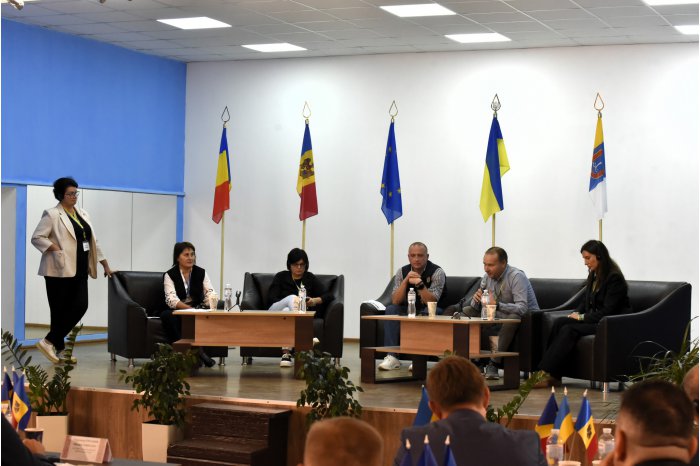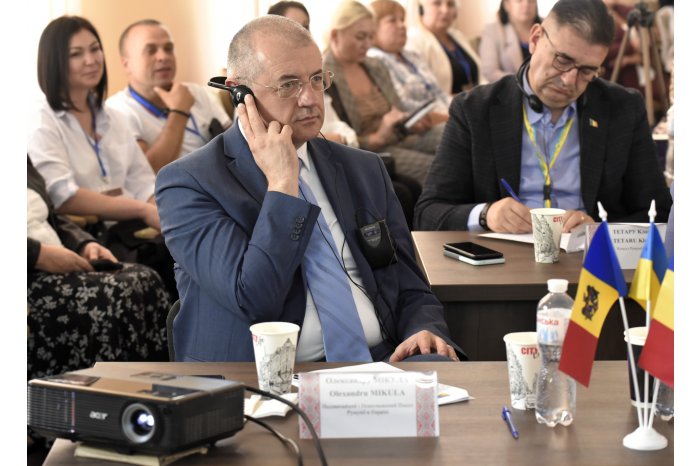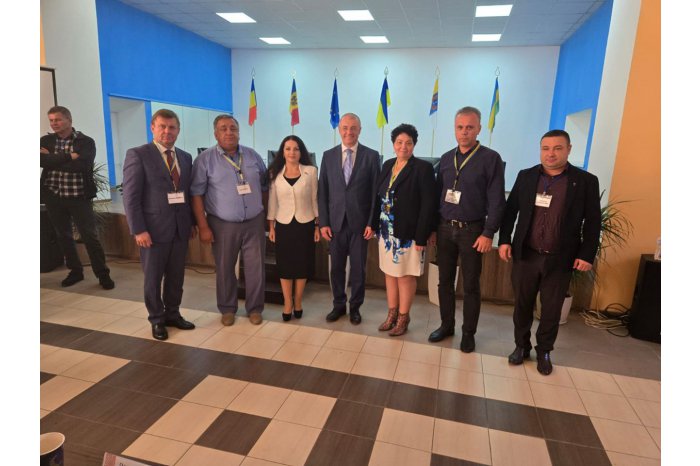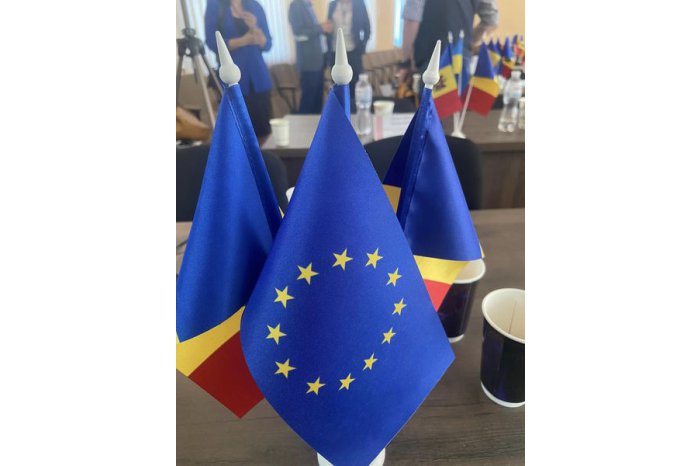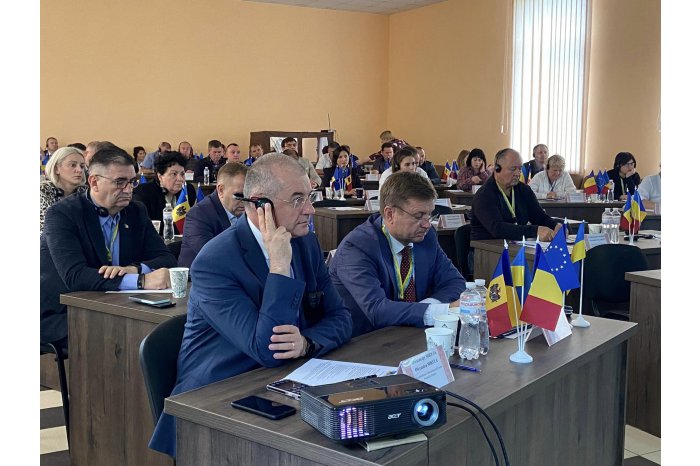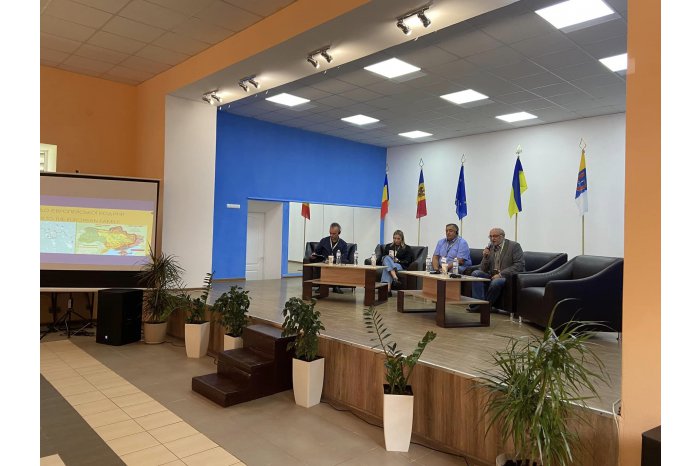Romania's Ambassador to Ukraine says Moldova has to choose between EU integration as nice project for citizens' well-being and colonial empire
15:14 | 25.09.2024 Category: Interview, Event
The settlements nearby the border from south-eastern Moldova and the Odessa region of Ukraine are determined to contribute to the consolidation of the cross-border relations. They have at their basis more common factors – origins, culture, language and most recently, aspirations for a European way.
The fourth edition of the regional conference, held under the aegis of the Bessarabian Technological Hub (BTH) in the Lesnoye village, hromada (commune) Borodino from the Odessa region last week, had a rich agenda, focused on the creation of a new Euro-region, called Bugeac. The goal of the conference was to assess the role of the technological hubs in speeding up the transformation of the border regions, preparing them for the accession to the European Union. The forum brought together representatives of the diplomatic corps, central, local and regional authorities, European experts, local leaders and representatives of the business environment. They discussed good practices and innovations which can boost the social and economic development of these areas. The event was followed by a MOLDPRES correspondent, who asked Ambassador of Romania to Ukraine Victor Micula to give an interview.
MOLDPRES: Your Excellency, how do you assess the Romanian-Moldovan-Ukrainian cross-border cooperation, especially in the context of the pre-accession of Moldova and Ukraine to EU?
Victor Micula: Any integration starts from borders. The instrument of the cross-border cooperation is a very important one for the communities from both sides of the border. They are to know each other and to start cooperating, implementing projects financed from non-refundable European funds, plus the national and local contributions. Or now, when Moldova and Ukraine have become candidates for accession to the European Union, the good European practices become accessible also for some regions which have earlier not been eligible. .
MOLDPRES: To what extent Romania will support the settlements densely populated with ethnic Romanians and the education institutions where subjects are taught in the Romanian language?
Victor Micula: There have been earlier also certain instruments available for the schools where the subjects are taught in the Romanian language; but they were not sufficiently accessed. This depends, to a great extent, on the local communities, on the teaching staffs of these schools. There are available resources through the Department for the Romanians Everywhere, which can be used both for the endowment, renovation and modernization of these schools, as well as for the financial backing of the pupils and teachers who teach in the Romanian language in these schools. These regulations are known or, in order to be accessed, one should submit files; the syllabus must be updated in accordance with the national legislation from Ukraine. I repeat: there is a huge potential of cooperation which the schools from this area have not turned to good account. I encourage them to take advantage of this situation, in which both Kiev and Bucharest are set to support the teaching in the Romanian language.
MOLDPRES: Practically, how Romania can help?
Victor Micula: If they need counselling to be able to work out these projects, we are at their disposal, either through Embassy or through the General Consulate from Odessa. The employees of the Consulate can counsel, can go to the zone or we may add to this also the expertise of those who have already benefited from such projects. There are thousands of children and teachers who benefit from these syllabi and it would be regretful for other schools not to take advantage of this. This assistance has existed also so far, till the context of the European integration on cross-border segments.
MOLDPRES: Which are the benefits of the cross-border cooperation between Romania, Moldova and Ukraine in the European integration process?
Victor Micula: Returning to the cross-border area, it is obvious that the zone from the immediate neighbourgood is the one which easier interacts with Romania and can easier access funds. Yet, we should not forget those from other regions either, who do not know this exercise and who, through the creation of new teams, new friendships, can become part of quite ambitious projects in the long run.
The cross-border cooperation and especially in the process of accession of Ukraine and Moldova to the European Union can lead to the increase in the number of friends not only from the three countries, but also from other EU member states. Together, we can do more than we do alone.
MOLDPRES: Moldova’s citizens are called to participate in a referendum on Moldova’s European integration this autumn. The authorities are set to put down the strategic goal of European integration in the Constitution, if the citizens vote for this desideratum at the plebiscite. What urge do you have for Moldova’s citizens in this respect?
Victor Micula: My piece of advice is that they invest in the well-being of their children and grand-children. The European Union has already proved that it is a peace project, which brings good understanding and welfare to all those who join EU. The European Union is made only of member states which chose to be part of the European Union. There are no occupied states. Or, we have to choose between a nice project which puts on the first place the citizen’s well-being and a colonial empire, which commits mass crimes and atrocities. From my point of view, the choice is easy. The choice is in favour of the future of our children and grand-children.
Your Excellency, thank you for the interview!
Author: Lilia Grubii
